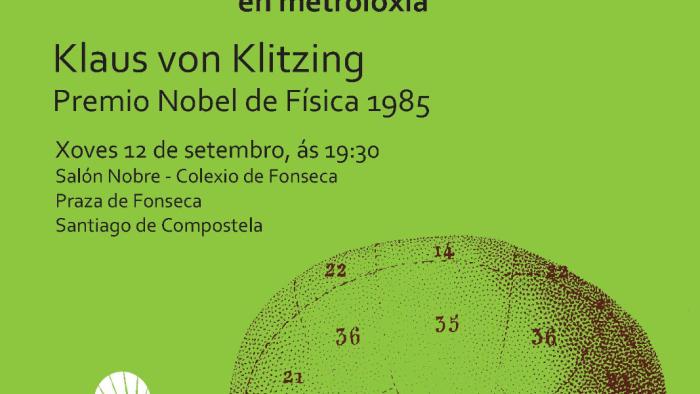
Nobel Prize in Physics 1985, “for the discovery of the quantized Hall effect”
Klaus von Klitzing was born in 1943, graduated in physics from the University of Braunschweig in 1969 and received his doctorate from the University of Würzburg in 1972. In his postdoctoral stage he carried out research periods at the Clarendon Laboratory in Oxford (United Kingdom) and at the high magnetic field laboratory of the Max Planck Institute in Grenoble (France). It was there where in 1980 (at the age of 37) he made the discovery that led him to the Nobel Prize just 5 years later, which gives an idea of the great impact of his contribution.
Since 1985 he has held the position of director of the Max Planck Institute for Solid State Research, based in Stuttgart.
In his research, Klaus von Klitzing explored systems of electric transport that behave as if only two dimensions existed (movement in the plane) unlike our three-dimensional world. To do this, he studied devices based on thin films of semiconductor materials with high electronic mobility, where the charge carriers move in a plane.
What changes in electrical conduction with this dimensional loss? When a current flows in one direction through a three-dimensional conductive material, when a magnetic field is applied perpendicularly to it, the electrons are deflected away from that direction, in what is known as the Hall effect, discovered in 1879. The deflection increases continuously and proportionally with the intensity of the applied magnetic field; but in the mid-1970s it began to be suspected that this would not be the case in two dimensions. In this context, von Klitzing designed an experiment in 1978 that showed that something strange was happening; but he kept the secret until 1980, when he managed to confirm the existence of the so-called quantum Hall effect: the deflection of electrons is no longer continuous with the increase in the magnetic field, but stops for certain magnetic field intervals, with an step-like evolution (what in physics is called quantization). Furthermore, he discovered that the magnitude of these steps is determined by a universal value in which key universal constants are involved, such as Planck's constant and the charge of the electron. The phenomenon also occurs with extraordinary precision.
The implications of his achievement triggered feverish activity in this area of physics, to the point that very shortly afterwards, in 1982, the so-called fractional quantum Hall effect was discovered (in which charge carriers behave as if their charge were a fraction of that of the electron), which was recognized with another Nobel Prize, awarded to Daniel Tsui, Horst Störmer and Robert Laughlin in 1998.
Aside from the conceptual leap of this discovery, on a practical level von Klitzing's work revolutionized the capacity for precision in metrology (the science of measurement and its applications), in this case in the field of electrical phenomena and atomic and particle physics. In fact, a new universal constant has been born, the von Klitzing constant, RK=h/e2, with an approximate value of 25.8 kΩ, which is used as a calibration method for electrical resistance in electrical devices



